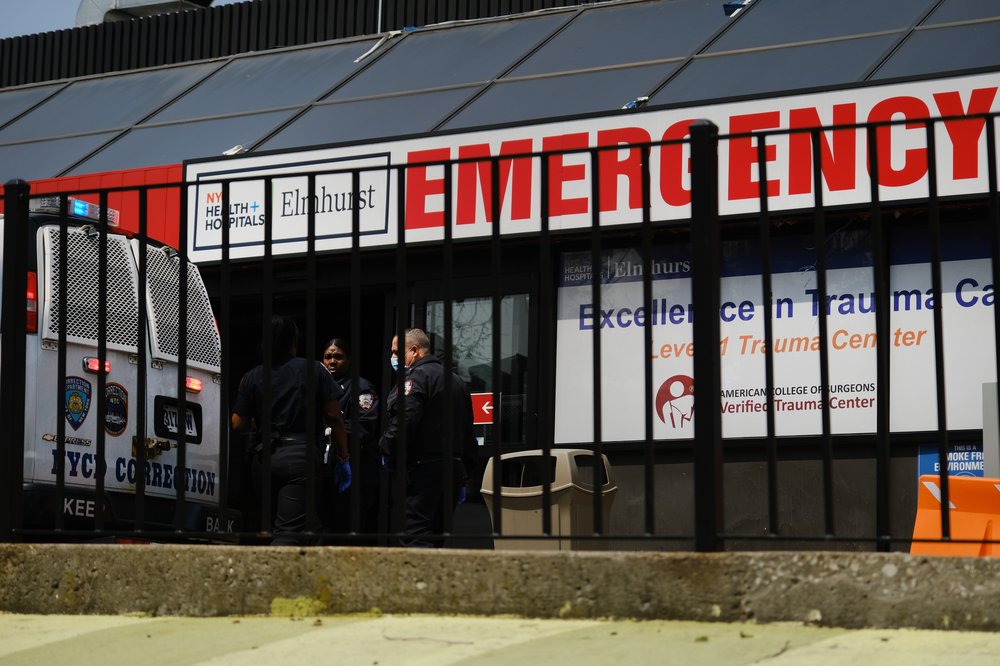NY Gov. Hochul vetoes bill to give locals more input on hospital closures
Dec. 14, 2024, 11:41 a.m.
The Democratic governor vetoed the bill on Friday after opposition from hospital lobbying organizations.

New York Gov. Kathy Hochul vetoed a bill on Friday that would have required local community input before a hospital closes a facility or certain units.
The bill, which state lawmakers approved in June, would have laid out a timeline and procedures for any closure, with the state Department of Health required to hold a public forum and issue a report on the potential effects of closure before a facility shuts down.
But in her veto message late Friday, Hochul said the bill didn’t properly take into account the realities on the ground.
Instead, the governor said she would direct the state Department of Health to come up with reforms to its existing closure procedures.
“Greater transparency in the closure process would be beneficial, but this bill does not appropriately balance that goal against the financial realities that struggling hospitals face and changes in health care services delivery,” Hochul wrote.
The bill is known as the Local Input for Community Hospitals Act — or LICH Act, a sly nod to the Long Island College Hospital in Brooklyn that closed despite community opposition in 2014.
The measure picked up steam in Albany earlier this year amid the news that two other hospitals in New York City — Mount Sinai Beth Israel in Manhattan and SUNY Downstate in Brooklyn — were slated to close, as were hospital units in other parts of the state. The two city hospitals remain in operation for now, partly due to community opposition.
But lobbying organizations representing New York’s hospitals pushed back, arguing that the bill was duplicative and too onerous for facilities buffeted by financial troubles.
The bill would have required hospital leaders to notify the state at least 270 days before closing an entire hospital, or 210 days if they are planning to close or reduce an emergency, maternity, mental health or substance use unit. Current state guidance calls for 120 days notice.
The Department of Health would have been required to hold its public forum on the plan at least 150 days before closure.
As supporters tried to pressure Hochul into signing the bill, its sponsor, Assemblymember Jo Anne Simon of Brooklyn, held a news conference with advocates including the state nurses union at the Capitol earlier this week.
Simon said New York City “lost a very significant player” when Long Island College Hospital closed a decade ago. She said her bill was meant to ensure hospital closures don’t harm the wellbeing of New Yorkers.
“We don't want to lose other significant players that have really contributed to the health and to the science and to the betterment of New York,” Simon said at the rally.
The hospital lobby argued the nine-month timeline for closure was too long, unrealistic, and doubled up on the state’s current guidelines and requirements.
“Establishing another lengthy and duplicative approval process will only further distress an institution facing difficult decisions in a financial crisis and will bind the hands of others trying to make service changes that meet identified community needs,” reads an opposition memo from the Suburban Hospital Alliance of New York State, which represents hospitals in the Hudson Valley and on Long Island.
State Sen. Gustavo Rivera, a Bronx Democrat who sponsored the bill, said the LICH Act wasn’t “just a bill for the city of New York, but for the whole state.”
“We can't have institutions that are the place where people get care just, from one day to the next, close or change what kind of services they offer without community involvement,” Rivera told Gothamist this week.
Cheating on your spouse is no longer a crime in New York Brooklyn’s SUNY Downstate hospital saved from closure until at least 2025